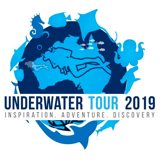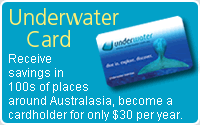- Home
- Directory
- Shop
- Underwater Cameras - Photographic Accessories
- Smartphone Housings
- Sea Scooters
- Hookah Dive Systems
- Underwater Metal Detectors
- Dive Gear
- Dive Accessories
- Diving DVD & Blu-Ray Discs
- Diving Books
- Underwater Drones
- Drones
- Subscriptions - Magazines
- Protective Cases
- Corrective Lenses
- Dive Wear
- Underwater Membership
- Assistive Technology - NDIS
- On Sale
- Underwater Gift Cards
- Underwater Art
- Power Stations
- Underwater Bargain Bin
- Brands
- 10bar
- AOI
- AquaTech
- AxisGo
- Backscatter Underwater Video and Photo
- BLU3
- Cayago
- Chasing
- Cinebags
- Digipower
- DJI
- Dyron
- Edge Smart Drive
- Eneloop
- Energizer
- Exotech Innovations
- Fantasea
- Fotocore
- Garmin
- Geneinno
- GoPro
- Hagul
- Hydro Sapiens
- Hydrotac
- Ikelite
- Indigo Industries
- Inon
- Insta360
- Intova
- Isotta Housings
- Jobe
- JOBY
- Kraken Sports
- LEFEET
- Mirage Dive
- Nautica Seascooters
- Nautilus Lifeline
- NautiSmart
- Nitecore
- Nokta Makro
- Oceanic
- Olympus
- OM System
- Orca Torch
- Paralenz
- PowerDive
- QYSEA
- Scubajet
- Scubalamp
- Sea & Sea
- SeaDoo Seascooter
- SeaLife
- Seavu
- Shark Shield
- Sherwood Scuba
- Spare Air
- StickTite
- Sublue
- Suunto
- SwellPro
- T-HOUSING
- Tusa
- U.N Photographics
- Venture Heat
- XTAR
- Yamaha Seascooter
- Youcan Robot
Samoa

The Independent State of Samoa (conventional long form) or Samoa (conventional short form) is a country comprising a group of islands in the South Pacific Ocean.
Samoa is located east of the international dateline and south of the equator, about halfway between Hawaii and New Zealand in the Polynesian region of the South Pacific. The Samoas are of volcanic origin and consist of the two large islands of Upolu and Savai'i which account for 96% of the total land area, and seven small islets: Manono, Apolima, Nuutele, Nuulua, Namua, Fanuatapu, Nuusafee and Nuulopa. The main island of Upolu is home to nearly three-quarters of Samoa's population and its capital city is Apia.
The Fa'a Samoa, or traditional Samoan way, remains a strong force in Samoan life and politics. Despite centuries of European influence, Samoa maintains its historical customs, social systems, and language, which is believed to be the oldest form of Polynesian speech still in existence. Only the Maori of New Zealand outnumber the Samoans among Polynesian groups (though virtually no full-blooded Maoi still exist).
Samoans have a communal way of life with little privacy: they do all their activities together and even traditional fales (houses) have no walls, and just use blinds made of coconut leaves during the night or bad weather. Up to 20 people may sleep on the ground in the same fale; during the day the fale is used for chatting and relaxing. Family is viewed as an integral part of life.
In the Directory
Climate
The climate is tropical with the average annual temperature of 26.5 degrees C, and a rainy season from November to April.
In the Directory

Shopfront
-
 Fantasea Housing for Sony RX100 III Camera
Fantasea Housing for Sony RX100 III Camera
- The FRX100 III Housing was specially created for the Sony Cyber-shot RX100 III digital camera. Ergonomic, access to all essential camera controls, rated to 60m.
- $AU 599.00
- 3% Cardholder's Discount!







